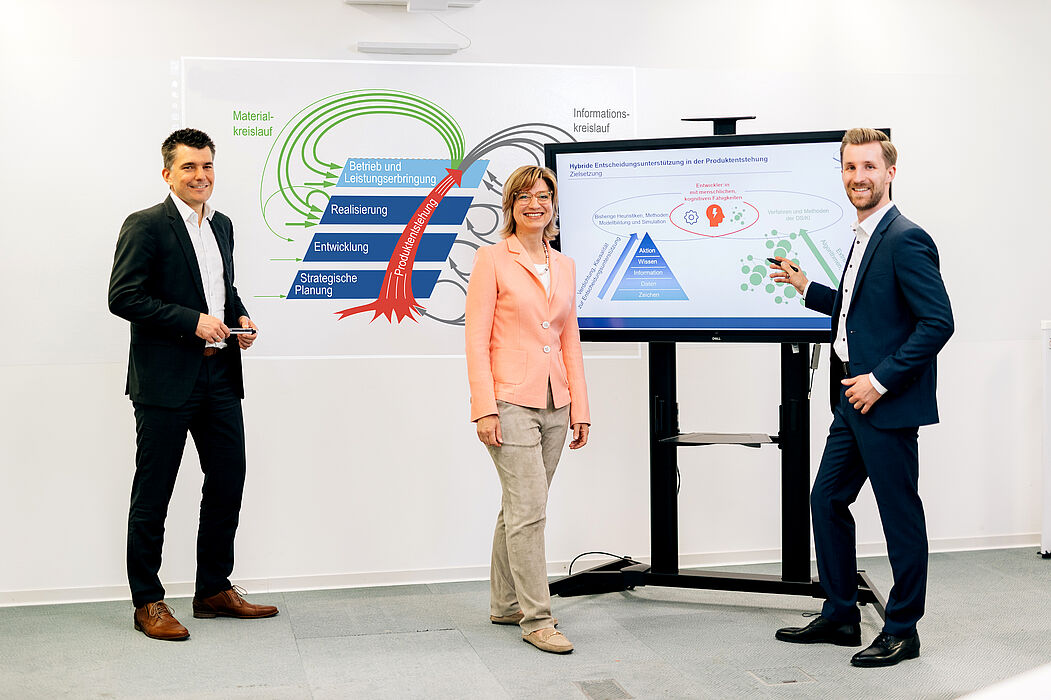How can we anticipate requirements today that will only materialise in the future?
The need for products to be sustainable and recyclable presents engineers with major challenges right from the early development phase. This is because many requirements often only become apparent later in the product life cycle. But how can such requirements be taken into account during development, even though many influencing factors are still unclear at this stage? Examples include available quantities of recyclate or the recyclability of materials.
This is precisely where the German Research Foundation (DFG) Priority Programme 2443 "Hybrid Decision Support in Product Creation" comes in. Professor Iris Gräßler coordinates the SPP at the Chair of Product Creation at the Heinz Nixdorf Institute. In the SPP, the DFG is sponsoring six interdisciplinary projects that are researching these forward-looking questions in a networked manner.
The focus is on the approach of hybrid decision support: humans and software algorithms do not make decisions separately, but synergistically together - both forms of "intelligence" are needed in product development. Methods from data science and artificial intelligence (AI) are used in such a way that they specifically support people's decision-making ability - an intelligent collaboration of human experience and data-based analysis.
The project was launched in December 2024 at the kick-off meeting at the Heinz Nixdorf Institute in Paderborn, where more than 30 scientists from the participating projects from all over Germany met for the first time to exchange ideas. Since then, the participating projects have not only been working individually, but also in a network: How can data be shared? How can an optimal human-centred approach be achieved - and evaluated? Which data science and AI approaches are promising? The SPP groups are working on these jointly identified cross-cutting topics.
The Chair of Product Creation is also actively involved in a project. In the DeCap project, which is being carried out jointly with the IFA at Leibniz Universität Hannover, the researchers are pursuing the goal of developing products in a capability-orientated manner in the future. With foresight, products should be particularly easy to dismantle and reassemble - thus keeping resources alive for longer and closing material cycles. A decisive contribution to the circular economy!
More information about the project can be found here.

